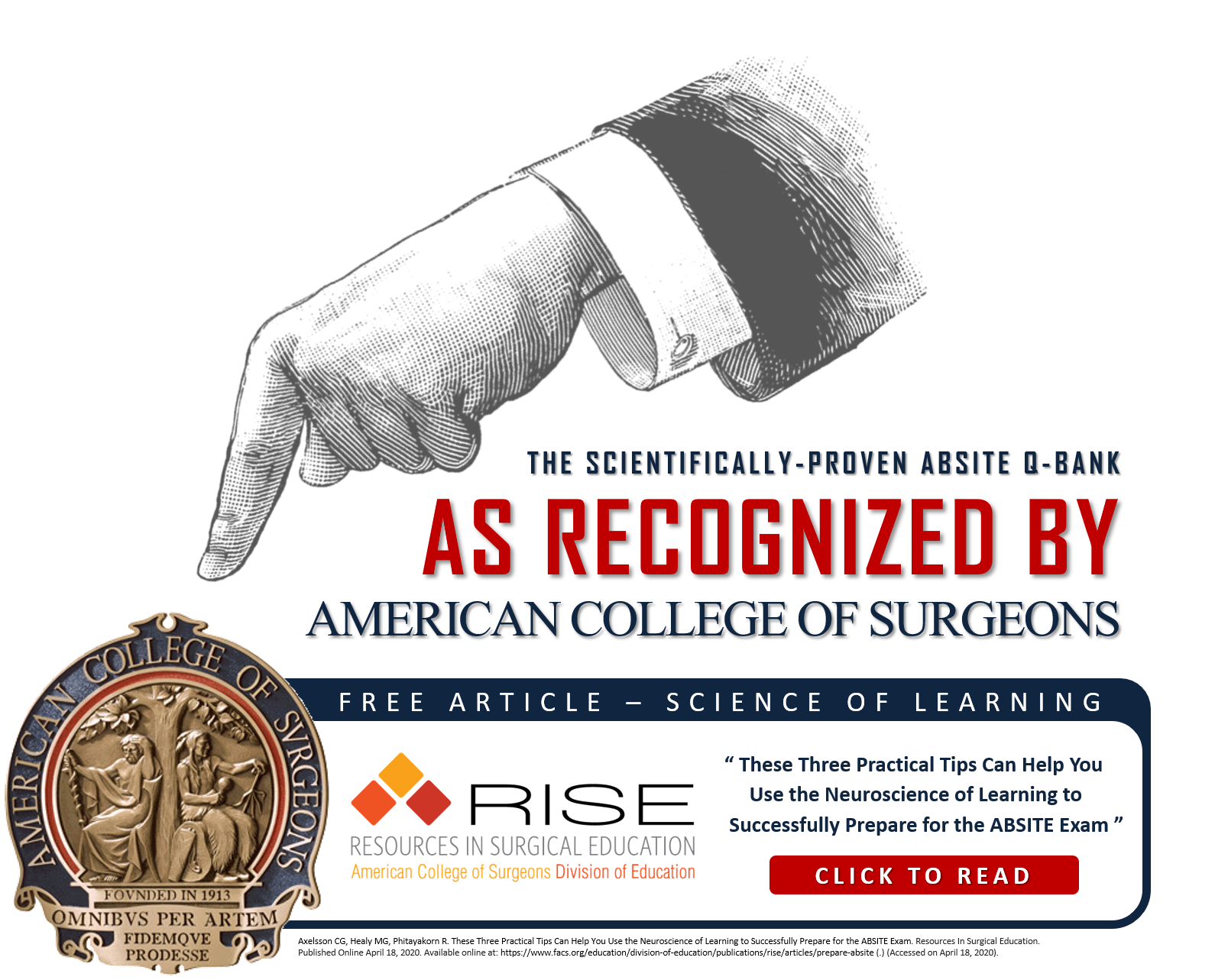
SCIENCE OF LEARNING
Spaced learning methodology was initially developed and studied by Harvard Medical School Associate Professor, Dr. B. Price Kerfoot, as a method to improve the long-term knowledge retention of medical trainees. ABSITE Quest has partnered with Qstream to deliver surgical residents the first, exclusive spaced learning Q-Bank built to optimize ABSITE performance and retention of surgical knowledge. Utilizing both the “spacing” and “testing” effects, Qstream’s simple, mobile delivery platform produces results that have been proven time and time again in clinical trials.
FORGET ABOUT FORGETTING
Forgetting is a natural, biological occurrence & must be factored into the teaching & learning process. A common assumption that if something is learned, it is retained, & can be easily recalled - is simply false. This proven phenomenon was documented as early as 1885 when German psychologist Hermann Ebbinghaus published his findings on learning.
Humans aren’t computers. The forgetting curve is real and represents a dramatic decline in knowledge retention over time. Studies show that in as little as 30 days, 79% of knowledge is forgotten. This is the simple biological nature of the human brain, but with the power of spaced learning the forgetting curve can easily be overcome.
SPACED LEARNING METHODOLOGY
A proven way to combat the forgetting curve is interval reinforcement. You can significantly increase knowledge retention if you present information and reinforce it over spaced intervals of time. The neurophysiological basis for the success in utilizing spacing effect is that learning over time enhances memory and the survival of new neurons. The repeated process of information uptake over time builds efficiency in encoding the information so that it is preferentially retained and more easily recalled later.
RETRIEVAL PRACTICE & REPETITION
Think of testing as an exercise in knowledge retrieval. It’s an active learning process that can dramatically improve knowledge retention when combined with immediate answer feedback. How well are you able to navigate your neural networks and retrieve a piece of retained knowledge? This process is known as the testing effect. Studies comparing the testing effect to passive learning without testing reveal that more frequent, low stakes testing is the most effective approach for learning & long-term knowledge retention. The more you practice (review questions), the better you play (ABSITE).
REAL RESULTS
Over 20 peer-reviewed clinical trials have been conducted to test the effectiveness of spaced education and Qstream. Results consistently show spaced learning to significantly improve knowledge retention, boost user performance, and maintain user engagement while learning. Extremely well-accepted by participants, evidenced by 93% user engagement, spaced learning with the Qstream platform has been adopted by many of the country’s top healthcare institutions to educate their trainees.









